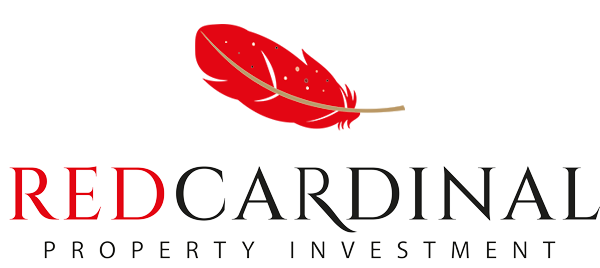Property Investment Tech Advancement
Property investment is the act of purchasing and managing real estate assets with the goal of generating income and achieving long-term capital appreciation. Moreover, property investment is an important part of many individuals’ and businesses’ financial portfolios. In recent years, Property Investment Tech Advancement has played an increasingly significant role in property investment, transforming the way investors analyse, manage, and transact properties. This article explores the definition of property investment and the role of technology in shaping its future, with a particular focus on the latest property investment tech advancement.
The Definition of Property Investment and Its Importance
Property investment involves the acquisition of real estate properties for the purpose of earning income through rent or capital appreciation. Investors can choose to invest in a variety of properties, including residential, commercial, industrial, and retail properties. Property investment is important for several reasons. Firstly, it provides investors with a means of diversifying their investment portfolios, reducing risk and enhancing returns. Secondly, property investment can provide a steady stream of passive income, making it an attractive investment option for those seeking financial stability. Finally, property investment is a long-term investment that can provide a hedge against inflation, as property values tend to appreciate over time.
The Role of Property Investment Tech Advancement in Shaping the Future of Real Estate
Technology has revolutionized the property investment industry, providing investors with new tools and opportunities to maximize returns and minimize risks. Below are some of the ways in which technology is shaping the future of property investment.
- Big Data and Analytics
- Internet of Things (IoT)
- Artificial Intelligence (AI)
- Blockchain Technology
- Virtual and Augmented Reality
Technology is transforming the property investment industry, providing investors with new tools and opportunities to maximize returns and minimize risks. By embracing these new technologies, property investors can gain a competitive advantage and stay ahead of the curve in an increasingly dynamic and evolving market.
Technological Advancements Shaping Property Investment
Big data and analytics analyse vast data and offer insights into property trends, markets, and opportunities. Investors use this data to make informed decisions, identify emerging trends, and predict future market conditions. They can minimize risks by investing in properties with high returns through big data and analytics.
Internet of Things (IoT)
IoT technology refers to a network of devices, sensors, and systems that are connected to the internet and can communicate with each other. In the property investment industry, IoT devices can be used to monitor and manage properties, providing real-time data on occupancy rates, energy usage, and maintenance needs. This allows investors to optimize their properties for maximum efficiency and profitability.
Artificial Intelligence (AI)
AI can be used to automate property management tasks, such as rent collection, tenant screening, and maintenance requests. AI algorithms can also analyse data from multiple sources to identify investment opportunities and predict future market trends. By using AI, property investors can streamline property management tasks and make more informed investment decisions.
Blockchain Technology and its Impact on Property Investment Tech Advancement
Blockchain technology provides a secure and transparent platform for property transactions, eliminating the need for intermediaries such as brokers and lawyers. Furthermore, this can reduce transaction costs and increase the speed and efficiency of property transactions. Blockchain technology can also provide a more secure and transparent way of managing property ownership and rights.
Virtual and Augmented Reality
Virtual and augmented reality technologies can be used to create immersive property tours, allowing investors to view properties remotely and make more informed investment decisions. These technologies can also be used to simulate property renovations and improvements, helping investors to visualize potential returns on investment. By using virtual and augmented reality, property investors can reduce the time and costs associated with physical property visits.
Benefits of Technology in Property Investment
Technology has transformed the property investment industry, bringing numerous benefits to investors, property managers, and tenants. In this piece, we explore five key benefits of technology in property investment, including improved efficiency and accuracy in property analysis and management, enhanced transparency in property transactions, increased accessibility to property investment opportunities, reduced costs and increased profitability, and improved tenant experiences and satisfaction.
Improved Efficiency and Accuracy in Property Analysis and Management through Property Investment Tech Advancement
Property investment tech advancement has enabled property investors to analyse large amounts of data quickly and accurately, providing insights into market trends, property values, and investment opportunities. With advanced analytics tools, investors can make data-driven decisions, reducing the risk of investing in properties with low potential returns. Additionally, technology has enabled property managers to automate routine tasks, such as rent collection and maintenance requests, improving efficiency and reducing costs.
Enhanced Transparency in Property Investment Tech Advancement
Blockchain technology provides a secure and transparent platform for property transactions, eliminating the need for intermediaries such as brokers and lawyers. By using blockchain, investors can access real-time information on property ownership and rights, reducing the risk of fraud and increasing transparency. This can also help to reduce transaction costs and speed up the process of buying and selling properties.
Increased Accessibility to Property Investment Opportunities
Technology has made property investment more accessible to a wider range of investors. Crowdfunding platforms, for example, enable investors to pool their resources and invest in properties that were previously only available to larger investors. Additionally, online property investment platforms provide investors with a range of investment opportunities, allowing them to diversify their portfolios and minimize risk.
Reduced Costs and Increased Profitability in Property Investment Tech Advancement
Technology has enabled property investors to reduce costs and increase profitability. By using analytics tools to identify potential investment opportunities, investors can maximize returns on their investments. Additionally, technology has enabled property managers to automate routine tasks, reducing labour costs and increasing efficiency. This, in turn, can help to increase profitability for property investors.
Improved Tenant Experiences and Satisfaction through Property Investment Tech Advancement
Technology has enabled property managers to improve tenant experiences and satisfaction. IoT devices, for example, can be used to monitor and manage properties, providing real-time data on occupancy rates, energy usage, and maintenance needs. This allows property managers to optimize properties for maximum efficiency and profitability, while also ensuring that tenants are comfortable and satisfied with their living arrangements.
Challenges in Adopting Technology in Property Investment
Property investment tech offers benefits but also faces challenges. We explore four barriers to tech adoption: resistance to change, lack of expertise, data privacy concerns, and high costs.
Property Investment Tech Advancement: Overcoming Resistance
One of the main barriers to the adoption of technology in property investment is resistance to change. Many investors and property managers are used to traditional methods of property analysis and management, and may be hesitant to embrace new technologies. This can lead to a reluctance to invest in new technologies or to implement changes in existing systems and processes.
Property Investment Tech Advancement: Gaining Technological Expertise
Another common barrier to the adoption of technology in property investment is a lack of technological expertise. Furthermore, many property investors and managers may not have the necessary skills or knowledge to evaluate and implement new technologies. This can lead to a lack of understanding of the potential benefits of technology and a reluctance to invest in new solutions.
Data Privacy and Security Concerns
Data privacy and security concerns are also a major barrier to the adoption of technology in property investment. With large amounts of data being collected and analysed, there is an increased risk of data breaches and cyberattacks. Investors and property managers may be reluctant to adopt new technologies if they are not confident that their data will be secure and protected.
Addressing High Costs of Implementation in Property Investment Tech Advancement
Finally, the high costs of implementing new technologies can also be a barrier to adoption. Investing in new hardware, software, and infrastructure can be expensive, particularly for smaller investors or property management companies. Additionally, there may be ongoing costs associated with maintaining and updating these technologies, which can further increase the overall cost of adoption.
Future Outlook for Technology in Property Investment
Property investment tech advancement is rapidly transforming the property investment industry, with increasing adoption of new technologies and applications. This piece explores the trends driving technology in property investment. These include the emergence of new technologies and applications, the integration of technology into traditional practices.
The Emergence of New Property Investment Technologies and Applications
The emerging technologies and applications are driving the growth of technology in property investment. Companies are using artificial intelligence, big data analytics, and blockchain to streamline property analysis, management, and transactions. Developers are creating new applications like property management platforms, investment analysis software, and tenant management systems specifically for the property investment industry.
Integration of Technology into Traditional Property Investment Practices
Another trend driving the growth of technology in property investment is the integration of technology into traditional practices. Rather than replacing existing systems and processes, technology is being used to enhance and optimise them. For example, property managers are using software to automate routine tasks, such as rent collection and maintenance requests. Additionally, investors are using big data analytics to supplement their traditional methods of property analysis.
Continued Growth of the Proptech Industry
Proptech start-ups are driving the growth of technology in property investment by developing new technologies and applications specifically designed for the industry. Investors are increasingly looking to these start-ups for innovative solutions. Additionally, the availability of venture capital funding for proptech start-ups is increasing, which is further driving the growth of the industry.
Conclusion
In conclusion, as the property investment industry continues to evolve, the adoption of technology is becoming increasingly important. In this piece, we explore the benefits of technology in property investment and urge property investors to embrace technology to remain competitive.
The Benefits of Property Investment
Technology offers several benefits to property investors. Technology offers several benefits to property investors, including improved efficiency and accuracy in property analysis and management and enhanced transparency in property transactions. Additionally, it provides increased accessibility to investment opportunities and reduced costs, resulting in increased profitability. Moreover, technology can improve the tenant experience and satisfaction, leading to better tenant retention rates.
Embracing the Tech Advancement
In summary, property investors must embrace technology to remain competitive in the industry. Furthermore, property investors should invest in the latest tech tools, partner with proptech start-ups, and develop expertise in new technologies. This gains a competitive edge, unlocks new investment opportunities, and enhances property analysis and tenant experiences.
Find out more about what’s happening in the property market in our News column.









